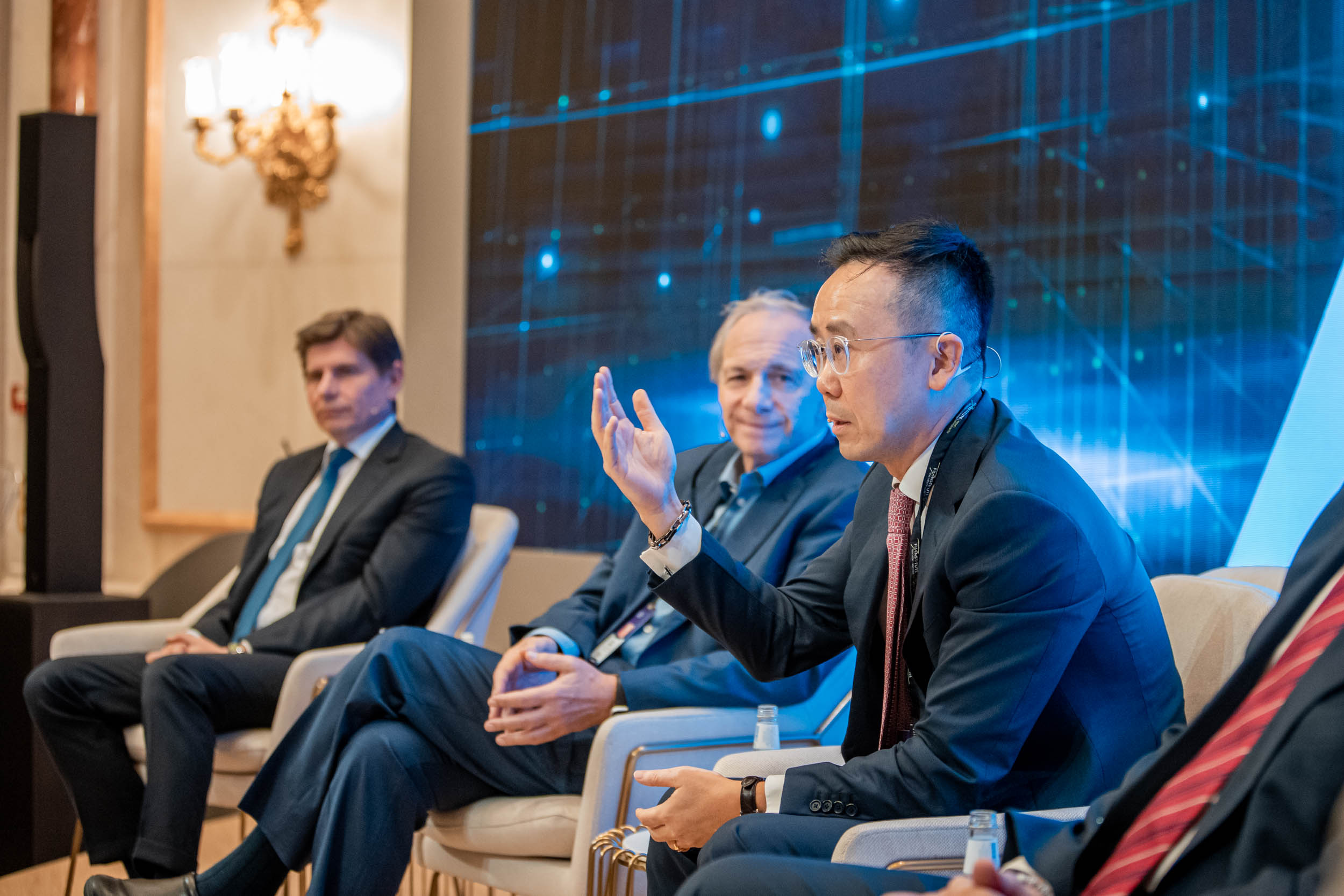
When asked the key principle to remember when navigating businesses in China, Ray Dalio answered: “the number one principle that comes to mind is a Chinese saying ‘a smart rabbit has three holes’.”
What should decision-makers pay attention to in China?
Ray Dalio: “The Chinese government has a long-term oriented view in terms of policymaking. They will not do certain policies in order to jack up the economy, such as producing more debt, instead they are going to focus more on debt restructuring. The local governments made a lot of money from land sales and so on. They had growth objectives, not income objectives, and now we have a situation where they have high levels of indebtedness, and a resolution is being sought.
As far as economic policy is concerned, I don’t think that you’re going to see the aggressiveness of monetary policy used in the ways that was done before starting in 2009. There were very aggressive debt and monetary policies back then. I think you are in a period which is very similar to the period in the 90s when Chinese Prime Minister Zhu Rongji had to do a restructuring. There is a need for restructuring of those debts. That’s a very politically challenging thing to do because they put someone in the position of actually having to make the decisions of wealth, how much does your debt get haircut, and so on.”
On China-US relationship
Ray Dalio: “And this is coming at the time when we have havoc in the United States, our own issues, particularly political issues such as the elections, and those elections will produce aggressiveness to China because both parties are united in terms of their view on China. The style of leadership right now when we have this populism, is to win at all cost and be aggressive. So we are entering a period of time when there’s going to be a lot of that pressure.
The way China wins wars historically is they win without fighting. I’m not particularly worried about a direct confrontation, but there will be a lot of pushing. I think that when you look at the Russia-Ukraine war, and the war that is in the Middle East and you look at the United States’ position, yes, we’re dealing with a situation in which the United States is very overextended and has its own problems. So I think that the nature of the conflict is going to end up being more like this chess game that’s played in which there is going to be pressure.”
On Chinese companies going global
Ray Dalio: “That of course has implications for many of the businesses here as to what does it mean to go global. You all know your own circumstances about going outside of China, which there’s a lot of desirability to bring excellent businesses that you’re developing to put them outside of China and into the world market.
There is an appreciation and recognition that entrepreneurship is a fabulous thing. The top policymakers will want well-behaved entrepreneurship along those lines.
Worldwide, we have to recognize that we are coming into an environment in which we can call ‘security,’ that’s the buzzword of it, but the preparation for a warlike environment in which the prioritization is in being able to have a population that’s prepared to do that, an economy that’s prepared to do that and therefore it isn’t as very hospitable to the types of environments that we’re used to, the free flowing entrepreneurship.
In terms of technology, countries have to make a choice, one technology or another. So the more you get into digital technologies, the more sensitivity there is to isolation. I don’t think that’s going to produce sanctions, as they have not been effective. Outside of technology, I think it’s going to be much less [restrictive] and much more open. Of course, the whole geopolitical thing changes very quickly, but my sense is that’s not going to cut off the markets. I think you have to think of there’s the US market and there’s the rest of the world market, and the rest of the world market, particularly in tech, is going to be a problem – the more techie it comes, the more problematic.”

Patrick Zhong on the framework to understand China
Patrick Zhong: “When many Chinese people think about America, they often say, ‘we’ve studied in America, so we believe we understand it well.’ When it comes to the American political system, they perceive it as more bottoms-up in nature. This simplistic view may not fully capture the grassroots level and the intricacies of how decisions are made in the United States.
There is a lot of wisdom in what Ray just said. He tried very seriously to understand how China works.
First, people think they understand how China works – it’s a top-down, centralized system – but there are actually many layers, such as how the Provincial and Municipal Governments work with the Central Government, where the money is coming from, who has the money, and how they divide up the tax receipt. If you don’t understand this, then you wouldn’t understand the economy in China with layers of texture.
I think everything Ray talked about is about a framework.
I believe the delta of transaction is directly attributable to the delta of knowledge – if you know something that others don’t, you will make money. There are three types of information in this world: firstly, the information that you get from the media and what all investors are talking about; secondly, the information that’s available but nobody talks about; and thirdly, the information that’s out there but not readily available, and you have to reconstruct it to understand the whole puzzle. However, most of people try to understand a very deep subject by reading what the media tells you, which may not be the most accurate approach.”
Chinese entrepreneurs of new generation
“I think what’s going on in China is pretty interesting, let me give you some examples. Most people say that China’s economy is slowing down, it’s no longer offering the world 7 or 9% GDP growth, and that the China story is over. But look at these entrepreneurs in the room, they are the entrepreneurs of this generation. They didn’t start their business 25 years ago, they started 5 years ago. They are leaders in robotics, renewable energy, electric vehicles, and so on, and have 80% of the world’s market share.
Why am I saying this? 30 years ago, if there was a global Olympics for businesses, China wouldn’t have been able to send anybody to compete. But today, they can send a team to compete in almost every segment, and most will win a medal. In terms of talents, the engineering pool in China is the largest in China’s history, and they are taking on some of the most complex challenges in our world, such as energy transition, dealing with demographics, and exploring their way in the world of AI. China’s entrepreneurs are at the best level right now in China’s history.
To borrow a line from Charles Dickens, ‘it was the worst of times,’ but also ‘it’s the best of times.’ Almost 15 years ago in 2009, right after the great financial crisis, a great American investor told me that every 10 years, about 25% of the American economy is new. I think China has reached that stage for the next 10 years. You will see some newness coming out of the economy.”
Carlyle CEO Harvey Schwartz on investment and sustainable growth in China
Harvey Schwartz: “If we were in 1980 and someone on the panel said we are about to witness the greatest economic transition in any conceivable period of economic history, going from agricultural to industrial, to a consumer technology-led economy, no one would have believed. I’d also think if we said in 1980 that 40 years later, China would become the second largest economy in the world, not only would a lot of wealth be created but also income, globalization of corporations, billions lifted out of poverty… I think we can all say, 40 years ago, that it’s basically impossible, can’t happen.
I think while there’s so much negative energy generally loud, it’s really worth pausing to celebrate everything that has been achieved. I think the headlines around China are hugely overstated. There are challenges, but the fundamentals remain quite good.”
What could companies with a ‘China-discount’ do going forward to bridge that gap?
Ray Dalio: “When you have an environment in which we are in right now, when foreigners and others are selling, when there’s a lessening in selling, the markets will go up. And I think we are approaching that point because there was the move to get out of China by a lot, and it doesn’t have to pick up to get back into China in order for the market to go up. I think your job is to run the business, all things considered, and let the market take care of the pricing of that business.”
Harvey Schwartz: “It’s an important question. When I was at Goldman Sachs as a Vice President, they asked me to run a recruiting effort and work with people coming out of college. In the summer, every junior university student that was coming in for an internship said they wanted to work on the desk that was most active, making the most money. When they go back to college and come back the next year, by then the desk had not been doing very well, because the markets would change. In 1999, you would’ve wanted to be in IPO, in 2003 you wanted to be in tech. You can’t, unfortunately, pick the market environment in which you do your business. None of us can pick the environment. As business professionals, knowing you can’t pick your business environment, you have to react to it. One of the things you can do for your business is, you have to be extremely aware of your environment. Your inner environment has to encourage growth, and it’s really about how to manage that growth. Inevitably, you will see the correction in valuation, and there’s the opportunity for growth. You also have to like it, you have to put joy to what you’re doing, it can’t just be about what others are saying, about the valuation, because at any given point in time, the valuation will appear too low. Just have a lot of passion and creativity in what you’re doing.”

